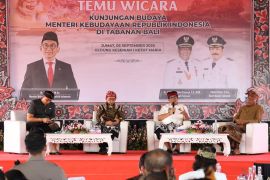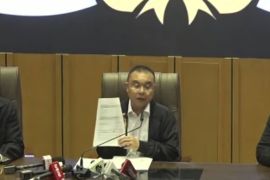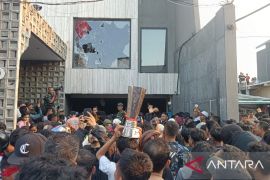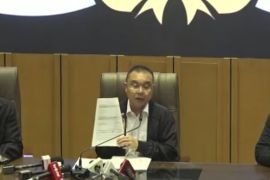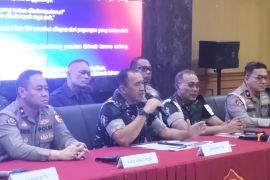This fear was voiced in a series of interviews conducted by a number of ASEAN and South Asian countries` journalists with some influential and religious figures in Thailand`s two predominantly Muslim provinces when the former toured the regions under the auspices of the Thai government last week.
Most people in the southern provinces of Thailand who are now living in peace in many respects after the fall of the Thaksin regime four years ago expressed their fear over the implementation of the general election as it may be won by a figure who will change the current government`s policy on the Southern provinces of Thailand, said Yusuf bin Ahmad, vice chairman of the Pattani Islamic Committee.
"Usually, such a change in the leadership of the country may also bring about a change in policy," he said and therefore what the southern people were afraid of was change in an unfavorable sense.
According to him, such a fear on possible chaos to happen is certainly inseparable from a change in that country`s leadership after general election which may affect their policy on Southern province of Thailand.
"If Prime Minister Abhisit Vejjajiva wins the general election it would be what we were hoping because then we can expect that the present policy on the southern provinces will remain unchanged. But if the winner is not him, there is a possibility the other figure may discontinue the existing policy on the southern parts of Thailand," he said.
"If Abhisit`s successor does not continue the existing policy, this will certainly be a big disaster for people living in the southern parts of Thailand," he stressed.
Furthermore, Prime Minister Abhisit Vejjajiva was assessed as having made a tremendous progress in implementing his policy on Southern province. Since the fall of Taksin`s regime, Abhisit was learned to have financially supported Islamic schools and Islamic traditional schools in the four predominant Muslim provinces of South Thailand.
"This is actually the right step the government has taken by giving more attention to the development of Islamic schools in some predominant Muslim provinces. The policy to fund Islamic schools is viewed by Muslim community as the best step to improve the level of intellectuality of local people in addition to instilling more understanding to the younger generations of Muslim community," Yusuf said.
Such a similar opinion was expressed by Rozali Mimaning, the Pareh village head in Pattani province, who thumbed up the Abhisit`s leadership as marked with better policy on the power distribution in Southern provinces of Thailand.
According to him, Abhisit did not only fund the Islamic education, but also provided potential local leader with better distribution of power in reigning their respective provinces in South Thailand. This could be seen as a big change in improving the ability of local leader on governing their region.
In addition, the Abhisit`s government also instructed such a soft and friendly approach on local people in the handling of attracts committed by armed groups. Practically, the way how the military deal with the members of armed groups was viewed as having succeeded in reducing the level of violence in South Thailand, he said.
Such security disturbance could be minimized in his village in the last four and three years and such sporadic attacks launched by armed groups in Southern part of Thailand was inseparable from the poor knowledge and campaign on the policy of the present government which has made a better progress in development program.
Many of those allegedly resorting to armed groups are jobless youngsters who are not well-informed on the present Thai government`s policy, Rozali said, adding that it was therefore the Thai government was recommended to take a friendly approach against whoever involved in armed attacks and continue to campaign the government`s policy to them.
"Therefore, whoever appears as the winner of general election later should be able to continue implementing the existing and better policy in order to create a better condition. If a change in the country`s leadership after the election fails to heed it, it may bring about a disaster to the life of people in Southern part of Thailand," he said.
Only did through a peaceful approach he believed that the alleged armed group would be able to see the reality and prevent themselves from taking the law into their own hand.
In the meantime, Abdurrahman in his capacity as the Chairman of the Islamic Committee in Pattani also stressed that such a war in the past had to do with injustice. If there was such a report on a conflict between Islam and Buddhist, it was actually a misleading report that should be corrected.
"What I learned in the past was exactly a war against injustice. In fact, the Buddhist and Muslim community could live in harmony. Such war which took place in the past was inseparable from discriminative policy applied the past leaders of Thailand who had failed to understand Islam," he said.
They always saw Islam in the wrong perception without never trying to understand the aspiration of Muslim community often regarded as enemies, thus causing the people to give their support to armed struggle taken by armed groups.
Now the condition had changed since the fall of Taksin, he said, adding that the present government also wanted to ask the local influential figures to a dialogue forum in order to know and to get the input on the best way to create peace in their respective province.
The government could only negotiate with local and religious leaders for a dialogue, as many of the armed groups` leaders never let their names known to the people. Practically it was difficult for the government to talk with their leaders.
Not like in Aceh, the government of Indonesia could make a deal with GAM, because their leader could be identified and known. But such leaders of eight armed groups in Southern part of Thailand were mysterious, said Major General Acra Tiproc, the Deputy Commander of the Internal Security Operation Command in Thailand.
The government could only negotiate with religious and community leaders in Southern provinces of Thailand as none of the armed groups` leader were known. They kept the name of their leaders in secrecy.
In response to fear of people in Southern part of Thailand on possible change in policy for that regions, Dr Panithan Wattanayakorn, a government spokesman, said it was groundless to change the existing policy, as there was no reason for whoever to appear as the winner in general election later to turn such a better and conducive condition to chaos.
Such a policy already implemented and proven to be able to create peace in Southern part of Thailand would be maintained. "I do believe whoever the leader of the country later will keep the policy to remain unchanged," he said.
Hence, there is no need to worry about possible change in the government`s policy on Southern part of Thailand if the present policy is proven effective to create peace to Thai Muslims, Panithan said.
(T.E002/HAJM/B003)
Editor: Priyambodo RH
Copyright © ANTARA 2011


